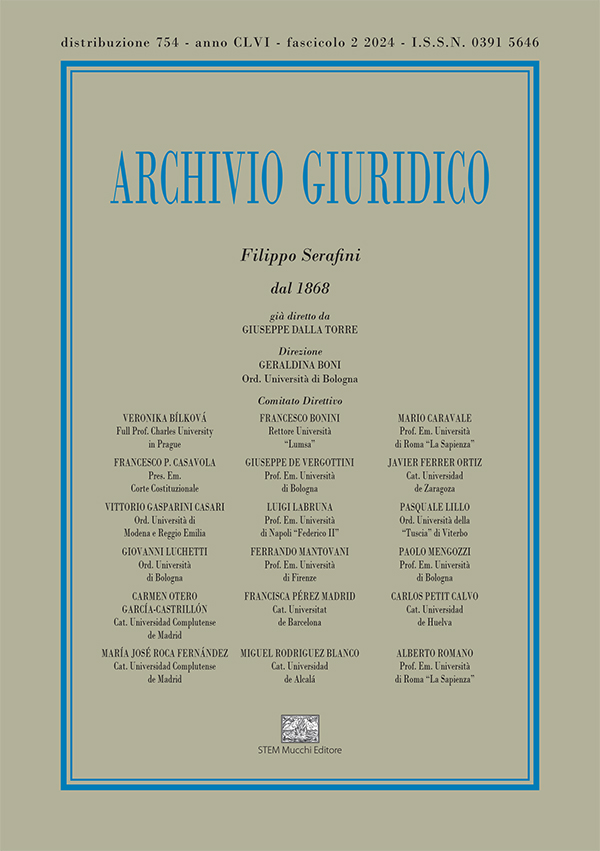La crisi del Welfare State ha costretto a rivedere priorità e modalità di erogazione dei servizi sociali, avviando una riflessione politica e giuridica sul come promuovere l’organizzazione di una rinnovata responsabilità civile e il coinvolgimento di soggetti ‘terzi’ rispetto alle istituzioni civili. Ciò al fine di soddisfare domande e bisogni a cui lo Stato e il Mercato, per ragioni diverse, si sono dimostrati incapaci di fornire risposte adeguate. In quest’ottica va inquadrata l’approvazione del ‘Codice del Terzo Settore’, attraverso cui si sono aperte importanti prospettive d’impegno agevolato nelle attività di utilità sociale per le diverse soggettività del ‘privato-sociale’ e per gli enti religiosi, destinati sempre più ad essere attratti nelle dinamiche degli ordinamenti secolari contemporanei. Una tendenza che si presta ad attenuare il ricorso al regime speciale definito per gli enti ecclesiastici e ad accentuare l’impiego della legislazione comune unilaterale, dettata a beneficio di tutte le figure impegnate nell’erogazione di servizi di benessere collettivo.
Parole chiave: enti religiosi, ‘Terzo Settore’, diritto comune, diritto speciale, benessere.
The crisis of the Welfare State has forced us to review priorities and methods of provision of the social services, starting a political and legal reflection on how to encourage the organization of a renewed civil responsibility and the involvement of ‘third’ subjects with respect to the civil institution. This is in order to satisfy questions and needs to which the State and the Market, for different reasons, have proven as incapable of providing adequate answers. The approval of the ‘Third Sector Code’ must be seen in this perspective, through which important prospects of facilitated commitment in the activities of social utility have opened up for the various subjectivities of the ‘private-social’ and for the religious bodies, intended increasingly to be attracted into the dynamics of the contemporary secular systems. A tendency that lends itself to attenuating the use of the special regime defined for the ecclesiastical bodies and to accentuating the use of unilateral common legislation, dictated for the benefit of all the entities that are involved in the provision of collective welfare services.
Key words: Religious bodies, ‘Third Sector’, common law, special law, general welfare.

